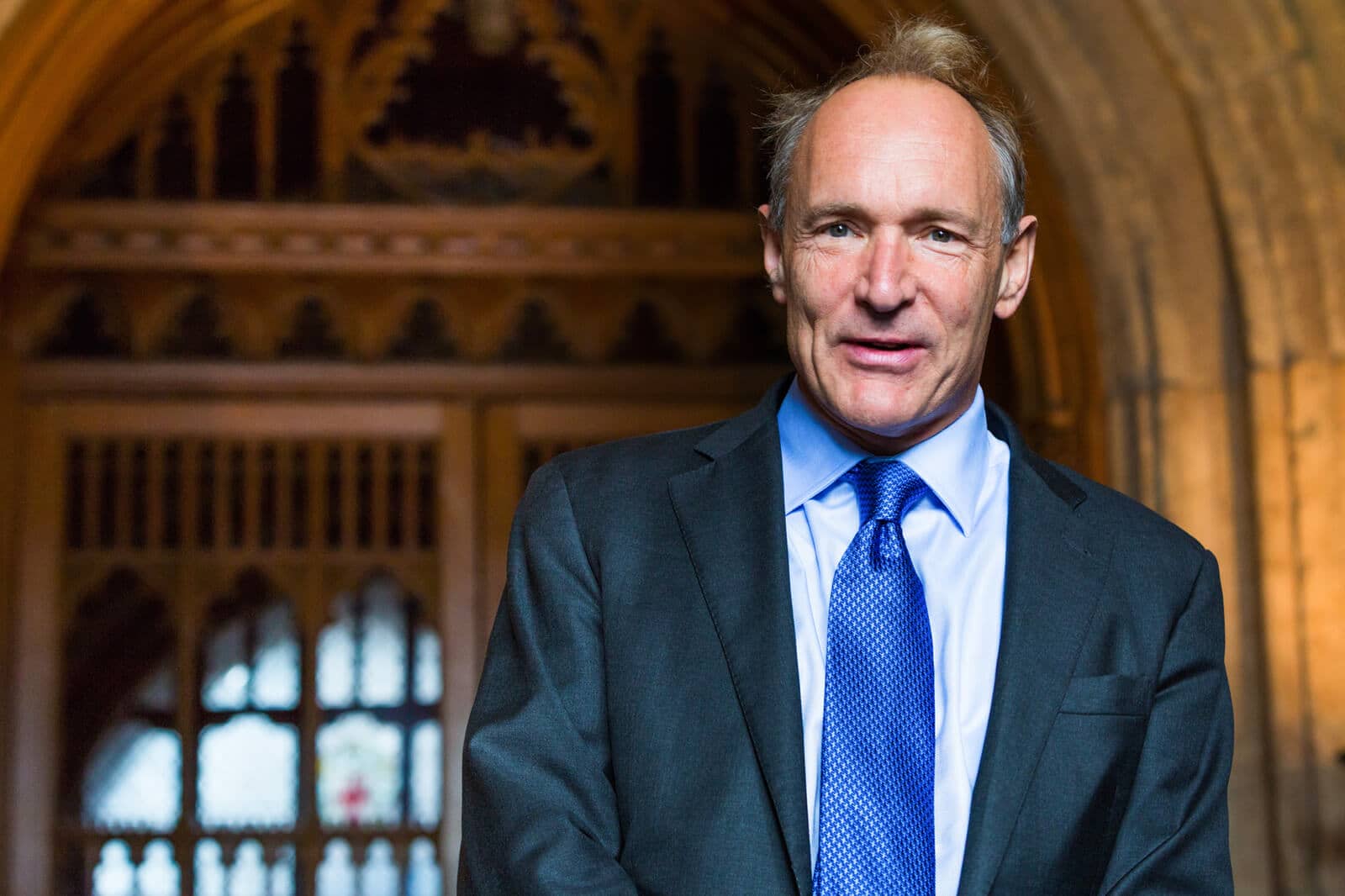Sir Tim Berners-Lee submitted his proposal for the world wide web only 28 years ago. Since then, the web has evolved into something incredible, that brings convenience along with a bunch of threats. Sir Berners-Lee has delivered a message to the users of the web, describing the evolution of it, and the responsibilities the users have, in order to ensure the web fulfills his vision of benefiting humanity.

“I imagined the web as an open platform that would allow everyone, everywhere to share information, access opportunities, and collaborate across geographic and cultural boundaries. In many ways, the web has lived up to this vision, though it has been a recurring battle to keep it open. But over the past 12 months, I’ve become increasingly worried about three new trends, which I believe we must tackle in order for the web to fulfill its true potential as a tool that serves all of humanity.”
The internet is facing three major threats, and we need to protect the world wide web against those.
1) We’ve lost control of our personal data
Google is free, except it is not. Google is using its users for data. But it is not just Google. A lot of websites have a business model where they offer free content in exchange for our personal information. The long texts of terms and conditions that most of us do not even bother reading allow the websites to keep our data and use it in any way they desire. We have no access and control over the data we just shared. We do not usually have a problem with sharing a bit of information for some free content, but we do not get to choose what data we are sharing and who will use it and how.
Our every move online is watched, by companies and by governments, either by choice or by force. With so many extreme laws being passed we practically have no right or privacy. This sounds like a good idea to monitor bloggers or anti-government movements in dictator states. Watching every citizen so tightly in a democratic regime is not only a hurdle to free speech but also imparts hurdles to web exploration for sensitive political, health, sexuality, and religious topics.
2) It’s too easy for misinformation to spread on the web
The most widely consulted source of information to today’s world is the internet. More specifically a bunch of social media websites and search engines that are capable of spreading information at a lightning pace. Websites learn our internet behaviors and preferences using our personal data, customize information to feed our biases and sell us click baits. This information, surprising, shocking and often false spreads like fire in no time. Generating user preference data may not sound so damaging considering it shows us things we prefer to see, instead of making us look at a bunch of data that we may have no interest in. It is important, however, to consider that the same data can be used by bots and armies of them, which employ data science and misuse our data to spread misinformation often for the sake of financial and political gain.
3) Political advertising online needs transparency and understanding
People get their information from a few social media platforms. This has helped political advertising become a sophisticated industry. The algorithms that extract the data about our likes, dislikes, behaviors, and biases are becoming increasingly sophisticated, and all advertisements that we see are individually targetted.
It has been seen that during elections, political adverts not only in the US but around the world, adverts are being used in unethical ways that drag the users to fake news websites or even keep them from polling. According to the Guardian, in the 2016 US elections, 50,000 variations of adverts were being served on Facebook every day. It is clearly not possible to monitor the effect of such a large number of adverts. It has also been seen that the kind of posts that we see on our social media are bound to affect our moods significantly. If an advertising campaign makes different groups of people see different information, possibly even conflicting, how are we so sure that the elections are democratic. Subconsciously, our own data is being used to control our minds, and there is very little we can do about it.
Along with the problems, Sir Berner-Lee has offered some solutions.
“These are complex problems, and the solutions will not be simple. But a few broad paths to progress are already clear. We must work together with web companies to strike a balance that puts a fair level of data control back in the hands of people, including the development of new technology like personal “data pods” if needed and exploring alternative revenue models like subscriptions and micropayments.”
He encourages the users to fight government overreach and misinformation saying,
“We must fight against government over-reach in surveillance laws, including through the courts if necessary. We must push back against misinformation by encouraging gatekeepers such as Google and Facebook to continue their efforts to combat the problem, while avoiding the creation of any central bodies to decide what is “true” or not. We need more algorithmic transparency to understand how important decisions that affect our lives are being made, and perhaps a set of common principles to be followed. We urgently need to close the “internet blind spot” in the regulation of political campaigning.”
The Web Foundation, founded by Sir Berner-Lee is working on a five-year strategy to fight these problems, researching them in more details and finding proactive policy solutions to progress towards a world wide web that gives equal power and opportunity to all. If you support the cause, you can make a donation here. We may not be the inventors of the web, but we all have a part in transforming it into what it has become today.
“I may have invented the web, but all of you have helped to create what it is today. All the blogs, posts, tweets, photos, videos, applications, web pages and more represent the contributions of millions of you around the world building our online community. All kinds of people have helped, from politicians fighting to keep the web open, standards organizations like W3C enhancing the power, accessibility, and security of the technology, and people who have protested in the streets.”
We built the web together, and it is our responsibility to save the web and build it into something we want, something that will benefit everyone equally. Here is a list of digital rights organizations that are working on such issues, you can choose to join either of these or donate to their cause.


